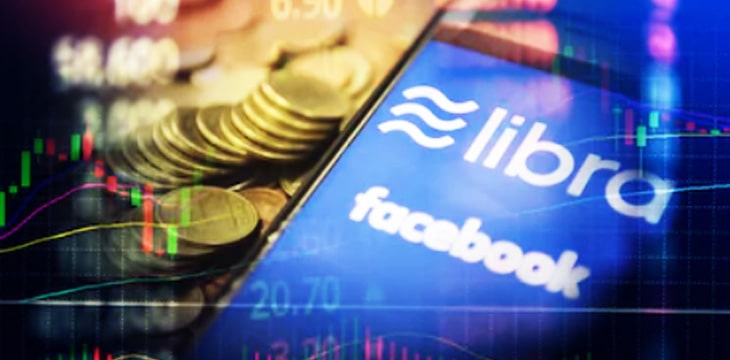|
Getting your Trinity Audio player ready...
|
Facebook’s dream of rolling out Libra, a digital currency for their social media platform and whatever partners that want to stick with them, is still crawling along. In a move to appease regulators all over the globe, the Libra whitepaper has been revised, changing how the currency will be backed.
Rather than a single currency finding its basis in a basket of fiat currencies, the Libra consortium now plans to develop several stablecoins, each backed by a different fiat currency, reports CoinDesk. So users will be able to purchase a U.S. Libra coin, a Euro Libra coin, and whatever other currencies and countries join the program.
That doesn’t mean the basket idea is dead though. Libra also hopes to issue multi-currency stablecoins, but rather than being backed by fiat, each coin would be backed by several stablecoins.
Libra announced the move on April 16, with vice-chairman Dante Disparte noting it was a move to please regulators. “The journey since the original white paper was released has really provoked an important conversation around the world about, ‘How do we appropriately regulate digital payments and digital currencies?'” he said.
Even with the change, Libra still hopes to launch this year. “We remain committed to our goal of being ready to launch in 2020,” a Libra spokesperson said.
The change is a deliberate move to get away from a controversial single currency, with no single country having any control over its value, to a stablecoin system that simply makes online transactions easier. The association noted:
“While our vision has always been for the Libra network to complement fiat currencies, not compete with them, a key concern that was shared was the potential for the multi-currency Libra Coin (≋LBR) to interfere with monetary sovereignty and monetary policy if the network reaches significant scale and a large volume of domestic payments are made in ≋LBR. We are therefore augmenting the Libra network by including single-currency stablecoins in addition to ≋LBR.”
That’s not the only change to Libra’s white paper. It also removes mention of permissionless participation in the project, making all members public to each other, but also possibly shutting out small time players. This was also spun as a way to keep regulators happy. “Regulators raised thoughtful questions about the perimeter of control for the Libra network – in particular, the need to guard against unknown participants taking control of the system and removing key compliance provisions,” the cover letter noted.
Thankfully, the cover letter also noted that the project will try to meet the regulatory recommendations from Financial Action Task Force (FATF). It would do so by limiting what individuals and unregulated entities can do on the network, cutting down on potential illegal uses of the currency.
https://www.financemagnates.com/cryptocurrency/coins/facebook-libra-updates-white-paper-to-woo-reluctant-regulators/
The white paper for Facebook’s much-anticipated cryptocurrency has been updated on libra.org, which is the official webpage for the social network-led project. Aside from expected amendments reflecting the revised Libra Association members, the biggest change is that the network will issue multiple stablecoins, instead of creating a single global digital currency.
While pleasing to some lawmakers and regulators, these changes take Libra further out of competition with Bitcoin, as it now becomes vulnerable to fiscal policies. “The main downside of these changes is that the system is less open, and less decentralized, therefore the bitcoin community will probably disregard this as another centralized project,” Yoni Assia, CEO and Co-founder of eToro, told Finance Magnates.
It’s also questionable if these changes make any difference. While many regulators will be happy to see greater transparency and more direct control for their respective currencies, lawmakers have been consistently more concerned with the lightning rod that is Facebook developing and controlling any currency at all.
The perfect middle ground here has to be a public digital currency blockchain, but only one that meets all the necessary criteria. It has to be compliant with regulations, but public to the world, so any one controversial business can’t be accused of monopolizing control over its transactions. And to work, it has to scale massively, so it can meet the transaction demands of the world while maintaining low fees and added utility. The only project that can do all of that is Bitcoin SV.

 03-01-2026
03-01-2026 




